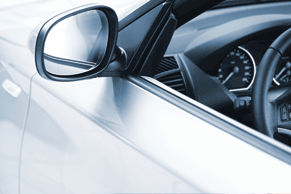HMRC confirms 20% rate to charge electric cars
If a business owns electric vehicles it might have previously been charged 5% VAT when they were charged at public places. HMRC has now issued a Brief advising that all supplies are subject to 20% VAT. What does this mean for claiming input tax?

Why 5% in the first place?
A supply of electricity is charged at 20% VAT, other than a supply for domestic use, which is charged at 5%, such as gas and electricity bills at a home address. However, the legislation also confirms that VAT is due at 5% on low-level usage in other settings which is deemed to be domestic use as well, including the charging of electric vehicles (EVs). It is this clause that has caused confusion. HMRC has now confirmed in Revenue and Customs Brief 7 (2021) that public charging points, such as at coffee shops, supermarket car parks and service stations, don’t qualify for any low-level use concession. It’s 20% VAT on all electricity supplied from these charging points.
There is no need to adjust past input tax claims if the business has only been charged 5% VAT. HMRC’s Brief does not indicate any retrospective action will be taken to recover more VAT from suppliers.
Input tax claims
If a business operates as a sole trader or a partnership, it can claim input tax on their employees vehicle charging costs but will need to apportion any claim between business and private/non-business use. Where an employee charges a vehicle at the business premises, input tax can be recovered, but again, only to the extent of business use. This will mean that the employer must carry out some apportionment for private use. The employee must provide the employer with details of their business and private mileage.
Alternative calculation
As an alternative approach to apportioning input tax, the employer can account for output tax on private journeys. It makes sense to base this calculation by using HMRC’s advisory fuel rate for fully EVs of 4p per mile.
Example. Sole trader John always charges his EV at a supermarket car park, paying 20% VAT. His only private use is his daily home to office journey, which is a 60-mile round trip. The output tax included on his quarterly VAT return for private use will be £26, i.e. 60 miles x 5 days a week x 13 weeks x 4p per mile x 1/6 VAT fraction. By accounting for output tax, he can claim input tax on all of the electricity purchased for his EV.
If the business is partly exempt it will need to further reduce a input tax claim.
Home charging trap
There is a further twist, which is surprising. HMRC has stated that no VAT recovery is available for employees who charge an EV at home for business use, as the supply is made to the employee and not to the business. It is not clear why HMRC considers this to be any different to an employee buying fuel at a filling station and claiming for business miles using the advisory fuel rates. Hopefully it will review this in due course.
Hybrid cars are not mentioned in the Brief, but for VAT purposes they are treated as either petrol or diesel cars.
Related Articles
-
Sharing salary with your partner
You’re a director with a substantial salary and your partner isn’t working right now. If you could split your salary with your partner the tax saving would make a real difference. How can you legitimately share your salary to improve the overall tax position?
-
Are you including too much income in your calculations?
Your business is partly exempt and you claim input tax on your mixed costs and general overheads by using the standard method based on turnover splits. What income should you exclude from the calculations?
-
Directors’ fees - can you escape PAYE?
You’ve been asked to join the board of a company in a purely advisory role. For tax and NI efficiency you want your fees to be paid to your own company. Does this arrangement fall foul of HMRC’s off-payroll rules?